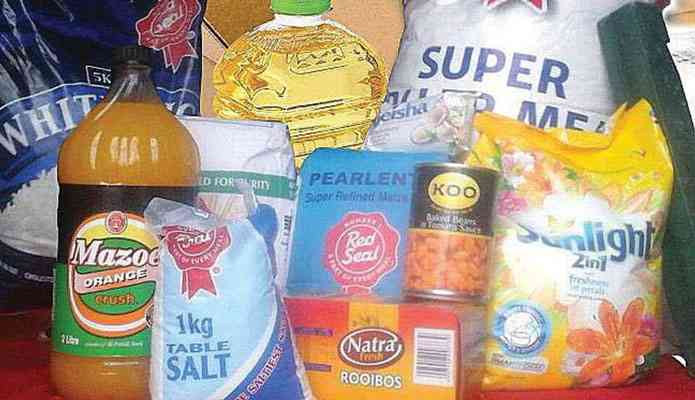
ZIMBABWE finds itself in the midst of a deepening currency crisis, marked by chronic instability and hyperinflation. The root causes of this crisis can be attributed to a combination of poor economic management and policy missteps.
In response to the escalating situation, the Reserve Bank of Zimbabwe (RBZ) has recently adjusted its monetary policy, underscoring the government's urgency to stabilise the economy and regain confidence.
During the Monetary Policy Committee (MPC) meeting on June 6 2023, the Reserve Bank of Zimbabwe (RBZ) announced several measures to address the volatility in the exchange rate and prices.
To tackle supply-side constraints, the RBZ resolved to sell foreign currency through banks at the market-determined exchange rate, with interbank maximum trading limits being reviewed upwards to US$500 000.
Additionally, the main and micro, small and medium enterprises (MSME) auctions will be merged under the US$5 million per week policy, with bid limits ranging from US$1 500 to US$50 000.
On the demand side, the RBZ increased the policy rate from 140% to 150% per annum, the Medium-term Bank Accommodation interest rate from 70% to 75% per annum, and the Statutory Reserve Requirements on local currency demand and call deposits from 10% to 15%.
The transfer of external debt and its payment from the Reserve Bank of Zimbabwe (RBZ) to the Treasury is expected to have a significant impact on money supply growth.
The Treasury will provide Zimbabwe dollar funding for the purchase of US dollars needed to repay external debt, which will help slow down the growth of money supply. This transfer of debt payment also reduces the risk of monetary expansion. Furthermore, the increase in statutory reserves from 10% to 15% is seen as a measure to curtail money supply growth.
- RBZ blocks Harare US dollar charges
- Thousands flee economic mess
- Industry cries foul over new export surrender requirements
- ZimStat undertakes to pay enumerators
Keep Reading
The increase in reserves and the transfer of debt payment aim to stabilise the economy and mitigate the risk of excessive money supply growth.
Despite RBZ efforts to boost the local currency, the Zimbabwean dollar has plummeted by more than 50% against the United States (US) dollar this month, exacerbating the economic challenges faced by businesses and households.
The economic situation in Zimbabwe is dire, with alarming levels of inflation and a rapid erosion of purchasing power. According to the Zimbabwe National Statistics Agency (Zimstat), the consumer price index (CPI) stood at 324,63 in May 2023 from 280,48 in April 2023.
These figures vividly illustrate the rapid rise in prices across the economy, contributing to the severe erosion of citizens' purchasing power. The Food Poverty Line (FPL) provides further evidence of the severe economic challenges faced by Zimbabweans.
The FPL represents the minimum amount of money required by an individual to afford a daily energy intake of 2 100 calories. In May 2023, the FPL for one person was recorded at Z$W30 109.
This figure highlights the significant strain on households and the increasing difficulty in meeting basic food needs amidst soaring prices. Many Zimbabweans are finding it increasingly challenging to afford essential food items, leading to heightened food insecurity and a decline in overall living standards.
The escalating prices of basic goods in Zimbabwe, coupled with retailers' preference for US dollars over the local currency, reflect the severity of the currency crisis and the erosion of confidence in the Zimbabwean dollar. This situation has created significant challenges for consumers who are grappling with the rising cost of living and limited access to stable currency.
The reluctance of retailers to accept the local currency stems from concerns about the currency's volatility and the uncertainty surrounding its future value.
Many businesses, particularly those engaged in importing goods, prefer to transact in US dollars as a means of protecting their assets and ensuring stability in their operations.
This preference for foreign currency further undermines the already fragile confidence in the Zimbabwean dollar, as businesses and consumers alike gravitate toward a more stable medium of exchange.
The constant increase in prices of basic goods exacerbates the economic hardships faced by Zimbabweans, particularly those with limited purchasing power.
As the cost of essential items, such as food, medicine, and household goods continue to rise, many households find it increasingly difficult to afford even the most necessities.
This situation has severe implications for the overall well-being and living standards of the population, leading to heightened levels of poverty and food insecurity.
The reliance on US dollars for transactions reflects the loss of trust in the local currency and highlights the urgent need for comprehensive measures to stabilise the economy and restore confidence.
The disappearance of basic grocery items from formal shop shelves in Zimbabwe, coupled with their availability in the informal market, highlights the impact of the currency crisis on the country's retail sector. Retailers are facing challenges in restocking essential goods due to a combination of factors, including the devaluation of the Zimbabwe dollar and the preference for US dollars in transactions.
Manufacturers, seeking more stable currency and payment options, are reportedly supplying goods to informal traders who can pay in foreign currency.
This preference for US dollars by manufacturers and informal traders further exacerbates the shortage of essential goods in formal shops, as businesses prioritise transactions that offer more stability and value.
The current re-dollarisation trend poses a threat to formal trade. The supply chains have shifted towards accepting US dollars, leading to a loss of market share for formal retailers who are unable to meet the trading terms set by manufacturers. This situation has resulted in challenges in restocking and replenishing goods in formal shops.
The shortages of basic goods are not solely the responsibility of suppliers. Manufacturers supply both informal and formal traders, but retailers must meet the trading terms established by suppliers, which some shops struggle to fulfill.
This difficulty in meeting trading terms has contributed to the restocking challenges faced by formal retailers. The demand for foreign currency payments by suppliers reflects the lack of confidence in the Zimbabwe dollar and the prevalence of forward rating, which makes Zimbabwe-dollar invoiced products less competitive.
Retailers and wholesalers accepting the local currency face challenges in remaining competitive, as the value of the Zimbabwe dollar continues to decline.
Acknowledging the undeniable reality of the ongoing dollarisation process in Zimbabwe were 70% of transactions are in USD, it is imperative to adopt the United States dollar temporarily as the anchor currency in order to bring stability and instill confidence in the economy.
In order to provide stability and improve the living conditions of civil servants and pensioners, it is worth considering the option of paying their salaries in US dollars.
This will mitigate the negative impact of hyperinflation on their incomes and enhance their purchasing power. Furthermore, cultivating a culture of savings among the people of Zimbabwe is crucial for establishing a robust economic foundation.
Implementing policies and incentives that promote saving, such as attractive interest rates and tax benefits, can contribute to increased savings and stimulate economic growth.
Combatting corruption and curbing illicit financial flows are of utmost importance in retaining the country's valuable resources and attracting much-needed investment and foreign currency.
Enhancing transparency and imposing strict penalties for corrupt
practices are necessary steps in effectively addressing corruption. Additionally, conducting a comprehensive review of fiscal and monetary policies are essential to ensure their effectiveness and coherence.
By fostering coordinated efforts between the Treasury and the central bank, decision-making can become more integrated and informed, ultimately enhancing stability and fostering economic growth.
The implementation of these measures should be accompanied by a comprehensive plan, proper institutional framework, and effective governance to ensure their success.
Addressing a currency crisis requires a multi-faceted approach that tackles both short-term stabilisation and long-term structural reforms!
- Zuze writes in his personal capacity. His interests are in socio-economic policies, public finance management, informal sector, domestic resource mobilisation, mineral resource governance, illicit financial flows and taxation. These weekly New Perspectives articles, published in the Zimbabwe Independent, are coordinated by Lovemore Kadenge, an independent consultant, managing consultant of Zawale Consultants (Pvt) Ltd, past president of the Zimbabwe Economics Society and past president of the Chartered Governance & Accountancy Institute in Zimbabwe (CGI Zimbabwe). — [email protected] or mobile: +263 772 382 852.











